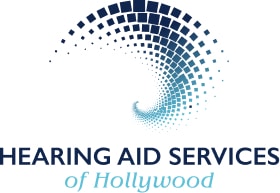Eating Habits and Hearing Loss

Recent research has shown that nutrition can slow the loss of hearing due to aging. According to the American Journal of Clinical Nutrition, “If you eat two servings of (fresh) fish, you lower the risk of hearing loss by 42 percent if you’re 50 years old or older.”
Eating fish reduces the risk of hearing loss primarily due to the presence of omega-3 fatty acids. As you may know, omega-3 is associated with a multitude of health benefits, including protection against cardiovascular disease, improved brain function and reduced risk of certain cancers. An American Journal of Clinical Nutrition study also revealed that omega-3 supplements lower the risk of hearing loss by 14 percent.
This does not mean eating fried fish at a fast-food restaurant will protect you against hearing loss. Processed fish offers few nutrients, including omega-3.
Vitamins and Minerals
Several researchers have shown that certain vitamins and minerals also lessen the probability of hearing loss due to aging. Vitamins C and E and the element magnesium may be among those that guard against hearing loss.
A 2007 study conducted in The Netherlands concluded that presbycusis (age-related progressive hearing loss) is delayed in the lower frequency ranges when people between the ages of 50 and 70 increase consumption of folic acid. Folic acid is found in vegetables, such as broccoli, beans and lettuce, and is also included in many multi-vitamin supplements.
Another study suggests consuming more beta carotene to prevent premature hearing loss. Orange and yellow vegetables, such as carrots and yellow beans, are among the best sources.
Avoid Noise Exposure
Excessively loud noise exposure is a leading cause of hearing loss. Noise can be recreational (shooting guns, music) or occupational (factory machinery, movie sound editing). However, noise exposure can be controlled. Use of ear protection, such as ear plugs or earmuffs, or simply leaving the noisy area, will prevent hearing damage. A good rule is if you cannot hear your own voice in the presence of noise, it is probably wise to use ear protection.
Wear Your Hearing Aids
According to research, individuals who suffer from hearing loss, but do not wear hearing aids, tend to experience continued deterioration of their hearing. Studies have determined that once people begin using hearing aids, hearing stabilizes in about seventy percent of cases.
Vitamins, Minerals and Supplements
Several researchers have shown that consuming vitamins C, E and dietary magnesium may guard against hearing loss. Additionally, a diet high in antioxidants may help maintain blood flow to the inner ear by controlling arterial plaque levels.
Fish Oils and Omega-3
Studies have demonstrated a relationship between regular consumption of oils rich in omega-3 and the preservation of hearing. The American Journal of Clinical Nutrition reported that two weekly servings of fresh fish can lower the risk of hearing loss by forty-two percent for people over fifty years of age. In addition, eating fresh fish regularly may provide protection against cardiovascular disease and certain cancers, and improve brain function.
Have Regular Medical Checkups
Be sure to see your physician as often as he/she recommends to control blood pressure, diabetes and kidney disorders.
Suggestions
- Have your hearing tested every year.
- Talk to your doctor about the supplements he/she would recommend for you.
If you have questions about nutrition and hearing, just give us a call.
In Summary
- Take action to avoid noise exposure. If you cannot avoid loud noise, purchase commercial ear protection or contact me regarding custom safeguards.
- Wear your hearing aids all day.
- Visit your doctor regularly and follow his/her recommendations regarding supplements.
- Have your hearing tested yearly to make sure your hearing levels are stable.
Call Hearing Aid Services of Hollywood at (323) 463-7109 for more information or to schedule an appointment.

